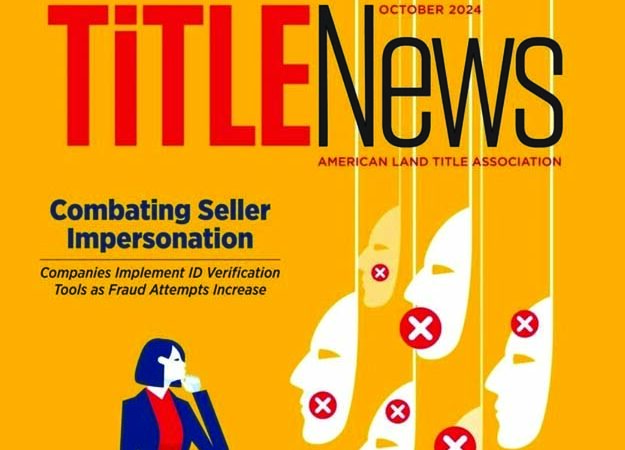Combating Seller Impersonation
IN JUNE 2024, criminals attempted to steal Graceland, Elvis Presley’s estate in Memphis, Tenn. The fraudsters posed as an auction company and fabricated documents to make it seem like Lisa Marie Presley, Elvis’ daughter, defaulted on a loan. Lisa Marie’s daughter, Riley Keough, sued to stop the foreclosure auction. The seller impersonation fraud was uncovered when investigators determined the company and documents were fake.
Sophisticated fraudsters use the real property owner’s Social Security and driver’s license numbers in the transaction, as well as legitimate notary credentials, which may be applied without the notary’s knowledge. These criminals prefer to use email and text messages to communicate, allowing them to mask their true identities and commit crime from anywhere.
Due to the types of property being targeted, it can take months or years for the actual property owner to discover the fraud. Property monitoring services offered by county recorder’s offices are helpful, especially if the fraud is discovered prior to the transfer of money
The attempt to steal Graceland is a high-profile example of how rampant this type of fraud has become. In February, a woman who was director of homeownership programs for the nonprofit United Community Housing Coalition in Detroit, allegedly stole more than 30 homes in and around the city. According to court documents, Zina Thomas forged quitclaim deeds that transferred properties to fictitious entities, and then sold them to unwitting third parties.
Seller Impersonation Fraud Attempts Increase
Seller impersonation fraud attempts continue to increase as 28% of title companies experienced at least one of these incidents in 2023, according to a study conducted by ndp | analytics.
The study, which included responses from 783 title companies across the United States, also showed that two out of 10 title companies experienced a seller impersonation fraud attempt in April 2024 alone.
While threats increase, the study found 91% of title companies currently provide or plan to provide education and resources to train employees on fraud. These actions are critical to combating all types of fraud, including seller impersonation fraud, wire fraud and elder financial exploitation.
Importantly, seller impersonation fraud often is caught before the real estate closing is completed. The study showed that in 2023, 46% of companies said identifying and preventing fraudulent transactions before closing was at least somewhat common. To compare, only 26% of companies reported it was somewhat common to catch the fraud after closing.
Both the ALTA Owner’s Policy and ALTA Homeowner’s Policy provide coverage to buyers who fall victim to pre-purchase forgery. The ALTA Homeowner’s Policy also protects against a third party who fraudulently transfers the owner’s property in the future. For companies in the 46 states where regulators have approved these enhanced policies, 42% of customers, on average, selected policies that protect their property from forgery, including seller impersonation fraud, in the future. In 2023, 16% of title companies paid claims on transactions involving seller impersonation fraud.
Common characteristics of seller impersonation fraud include notarization issues and use of a property owner’s legitimate non-public personal information. The most common notarization issues were fake notary credentials (43%) and use of real notary credentials without permission (31%), according to the study.
Vacant land at 85% was the most targeted type of property last year, followed by vacation homes (37%), rental properties (37%) and agricultural land (23%).
In 2023, most companies that experienced attempted fraud reported cash transactions held a higher risk of seller impersonation (88%), followed by requests for mail-away signing and the use of an unknown notary (86%), instances where there was no existing mortgage or encumbrance on the property (84%) and refusing to take voice or video calls (83%).

